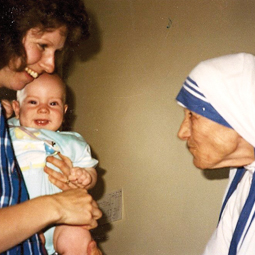Prayer Case Crucial to Future of Religious Freedom
Column for 'Fortnight for Freedom'

The Supreme Court just accepted for argument Galloway v. Town of Greece, the first legislative prayer case it has heard in 30 years.
The May 27 decision may turn out to be the most important religious-liberty case since Hosanna-Tabor protected religious employers in January 2012.
The town of Greece, N.Y., has long had a practice of opening the session of its town board with a short prayer. Two plaintiffs argued that this practice violated the Establishment Clause of the Constitution, in that the practice "established" Christianity as the town’s favored religion.
The lower court ruled with the town and held that the Constitution does not foreclose "sectarian" prayers associated with a specific denomination. The fact that most of the invocations were made by Christian clergy, in other words, had no constitutional bearing.
The appellate court reversed the ruling, however, and the potential implications of its ruling are deeply troubling. The court determined the lower court was wrong and said that specific prayer practices — even if unintentional — can establish a religion for purposes of the First Amendment.
The court found that, since 1999, when the prayer practice was adopted, the overwhelming majority of prayers have been Christian. Although prayers that are explicitly related to a particular religion, such as Christianity, are allowed, the court found that the analysis "must ask whether the town, through its prayer practice, has established particular religious beliefs as the more acceptable ones and others as the less acceptable."
There was no finding that the town intentionally discriminated against non-Christians, and there was no problem with the sectarian nature of the prayers themselves. And the town had from time to time invited non-Christians to lead the board in prayer.
But the court nevertheless found constitutionally problematic the fact that the town selected clergy "almost exclusively from places of worship located within the town’s borders." Because the town seems to have been almost overwhelmingly Christian, that meant that so were most of the people offering the invocations. Nor did the town solicit volunteers to give invocations or otherwise indicate all would be welcome to provide such an opening prayer; taken together, the court concluded that "an objective, reasonable person would believe that the town’s prayer practice had the effect of affiliating the town with Christianity" — and was therefore unconstitutional.
How the Supreme Court treats this case will be of crucial importance to the future of religion in the public square — and for such legislative prayers in particular. The court decision overruling the lower court acknowledges some important principles: Legislative prayers are constitutional, and explicitly denominational prayers are also fully permitted, so long as they do not degrade other religions or use a government meeting to preach conversion.
Indeed, the court recognized that the Constitution does not permit the government to sanitize denominational prayer into some vague "civil religion" in preference to actual religions.
The first risk in hearing the case is that the Supreme Court will use this opportunity to overturn those sound principles and find legislative prayer of any kind unconstitutional.
Catholics may have issues with seeming to bless government action, because the Kingdom of God is not the same as the secular state, but that is a separate question as to whether such prayers should be constitutional.
That may be unlikely, but even if that does not happen, there is a more fundamental risk. The appellate court’s reasoning now requires judges to investigate all the facts and circumstances of a particular town’s prayer practice, any combination of which could result in an unconstitutional practice.
As a practical matter, many communities may be unable to satisfy a judge under the town of Greece standard.
The court’s opinion raises the risk that religiously uniform communities will be unable to hold legislative prayer sessions if they cannot show — to a judge’s satisfaction — that they, for example, "solicited" places of worship outside their communities or otherwise tried to obtain volunteers. Here, the town did so, on at least three occasions, but that was not enough for the court. In other words, a workable rule may be difficult to find in the court’s analysis that would not have the inevitable effect of continued lawsuits and a reduced desire by local governments to have such prayers.
The Catholic political writer Willmoore Kendall, writing in 1964 about the "school prayer" cases, rejected the constant appeals to the Supreme Court to decide how "we the people" should govern ourselves. Instead, he argued that we should "[l]et the local community decide, but on the tacit condition that it recognize and live up to its local responsibility for keeping the peace, for not having people at each others’ throats."
Here, the town actually made an effort to attract non-Christian invocations and was able to do so. It is the court’s decision that has now disrupted the peace. Whether the Supreme Court will restore it remains to be seen.
Gerald J. Russello is a lawyer and editor of
The University Bookman (KirkCenter.org).
- Keywords:
- June 16-29, 2013

















